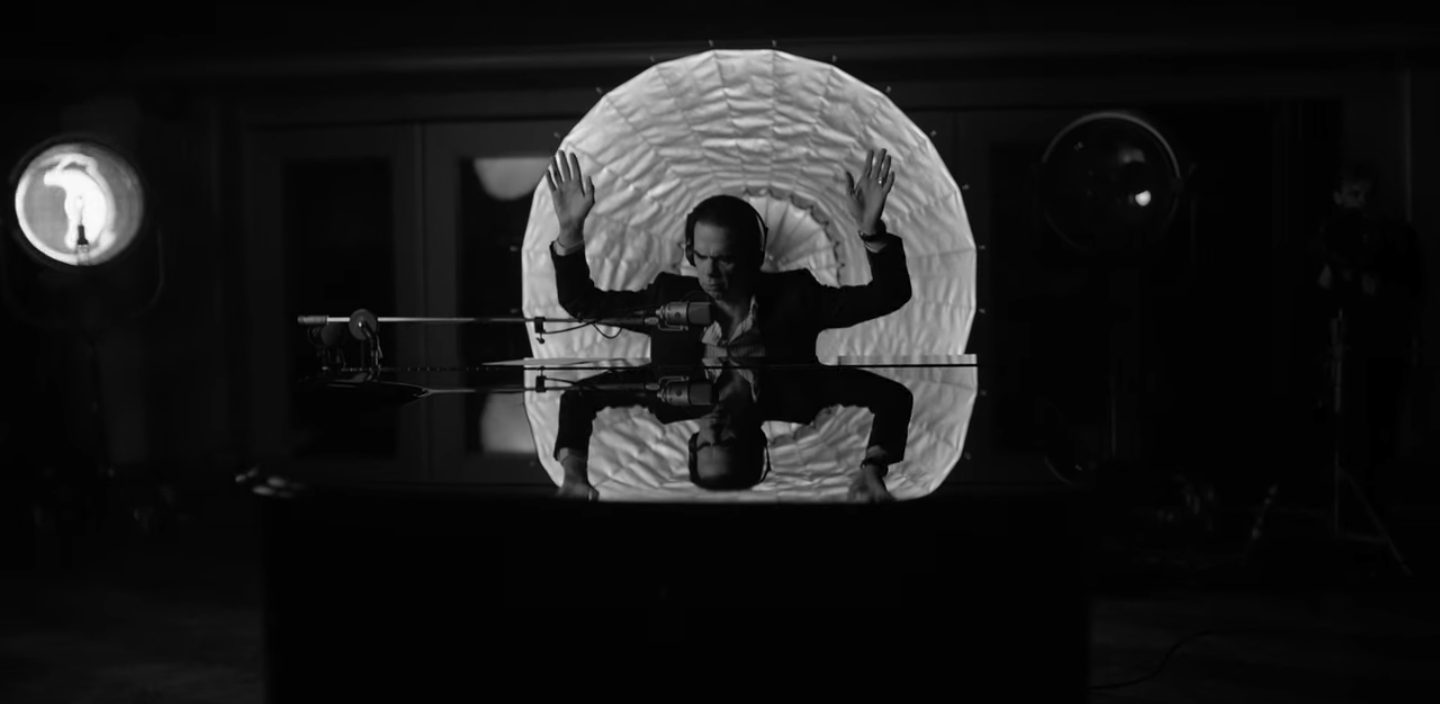One More Time With Feeling
This isn’t the first time Nick Cave and the Bad Seeds have done a musical documentary, but proceedings are very, very different this time round. Whereas their previous film, 20,000 Days on Earth, was a surreal, irreverent and fantastically inventive look into the biography of one of the strangest and most singular musicians alive (and a critically acclaimed author and screenwriter of films such as Lawless to boot), One More Time With Feeling takes on a much more sombre feel from the start.
The context is well known: last year, Nick Cave’s teenage son Arthur tragically died after falling off a cliff near their home in Brighton. It’s impossible to comprehend how someone could go on after the ultimate fear of any parent happens, yet, of course, they must, and this documentary follows Nick Cave as he pushes on to record his recent album, Skeleton Tree.
The songs his band play pay tribute to the love he has for his child, for the endurance of human beings in the face of overwhelming sadness.
The film begins by circling the event at a distance: if you didn’t know what it was about, for the first half-hour you’d only be aware that something horrific had happened, and that Nick had been truly broken by it. The film starts with Warren Ellis, the Bad Seed’s starring multi-instrumentalist, wondering aloud if they should even make the film, citing a duty of care he feels over Nick.
The general gist of Nietzsche’s The Birth of Tragedy is that tragedy combines the power and beauty of art with the horrors of life to make something that redeems life, that makes it more bearable. In this film, you see that happen in real time. The songs his band play go from horror and dissonance to a breath-taking, elegiac beauty: they pay tribute to the love he has for his child, for the endurance of human beings in the face of overwhelming sadness.
You wouldn’t expect a film like this to be so funny, but it is, and it brings a relief to its heaviness.
Light appears amidst the darkness in the form of Warren Ellis’s humour, such as when he reassures Nick before a performance “Yeah, your hair looks great. Best it’s ever looked”. When they finish the profoundly emotional piece, Nick asks how his hair looks now. “Even better.” In a voiceover, we hear Nick wonder “where would I be without Warren?” You wouldn’t expect a film like this to be so funny, but it is, and it brings a relief to its heaviness. Later on the film, we meet Nick’s wife and Earl, the twin brother of Arthur. In Earl’s charm and joy, and in the love we see between him and his parents, we witness something truly remarkable: Earl has been through the utmost worst of life at such a young age, but, like his parents, he’s testament to how someone can lose someone dear, and yet do what this person would have wanted them to do: to continue their own lives happily and well.
This really is art at its highest function
Andrew Dominik’s choice of a sombre yet beautiful black and white suits the film perfectly, as does the choice of shots that start off claustrophobically enclosed but gradually proceed to an openness and wideness which, at the end of the film, opens out into the sky and then the earth from space itself. This really is art at its highest function: it’s difficult to watch, but you’ll come away from it with a greater understanding of what life truly is, what people truly are.
Director: Andrew Dominik
Cast: Nick Cave, Warren Ellis, Nick Cave & The Bad Seeds
Country: UK/ France
Run Time: 122 minutes

Comments